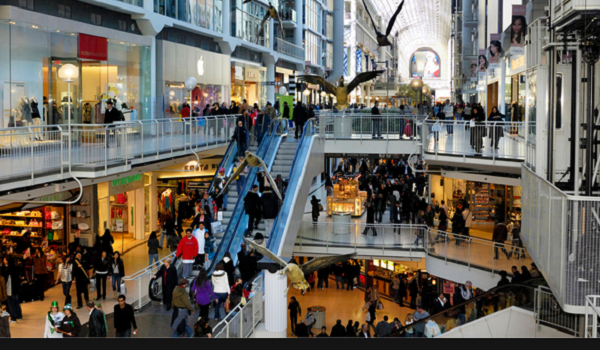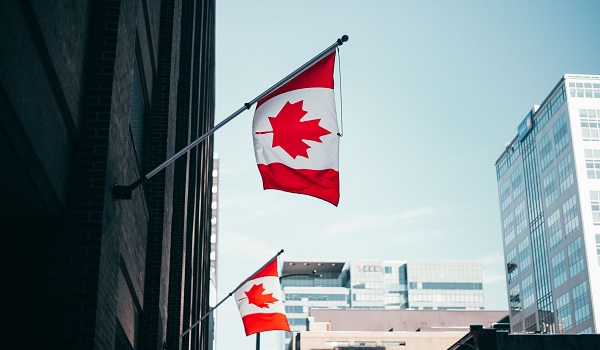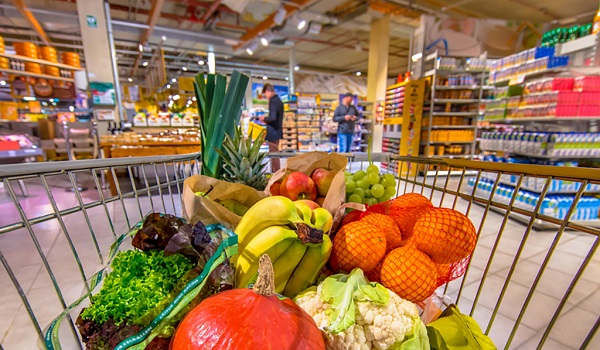Holiday season spending: Luxury sales in Toronto experiencing a stock market bump, say retailers
The soaring stock market has helped fuel a bump in sales at luxury retailers in Toronto in December, but some brands that have been steeply increasing prices are experiencing headwinds, say experts.
“The strong markets have made people feel more confident,” said Larry Rosen, CEO of Harry Rosen, citing strong December sales following a late start to the holiday season due to a later Black Friday than usual.
“When people’s houses go up in price and people’s stock portfolios increase, it gives them a greater level of confidence, people are more free-spending and we’re certainly feeling a positiveness this December,” said Rosen.
Holt Renfrew spokesperson Adam Grachnik said stores saw increased traffic in November and their strongest Black Friday and Cyber Monday in recent years.
“More specifically, beauty and accessories are exceeding expectations the past few months, and it’s good to see the momentum continue,” said Grachnik.
Darren Mason, president of Andrew’s, said sales at all three Toronto stores are positive and all channels are experiencing growth.
“I believe the strength in the markets has helped offset the inflation effect made particularly worse by a low dollar,” said Mason.
Fashion — one of the pillars of luxury retailing — experienced a sluggish 2024 overall, according to a recent report by McKinsey & Company.
In 2025, fashion industry growth is expected to remain low but increase slightly.
“In particular, the industry will benefit from falling inflation and increased tourism in Europe, the resilience of high-net-worth individuals in the United States, and new growth engines in Asia (to counteract uncertainty around consumer spending in China, which is still recovering from the pandemic),” according to the report.
“China will remain the region’s centre of gravity, but as the country is buffeted by macroeconomic headwinds, brands will pivot focus to other Asian markets, most notably Japan, Korea and India.”
Fashion retailers have been feeling the brunt of the slowdown in the Chinese economy, and sales are down in the Japanese market as well. LVMH reported sales fell three per cent in the third quarter, and five per cent in the fashion and leather goods division, dominated by Louis Vuitton and Dior.
Kering, the French luxury powerhouse that owns Gucci, reported a 16 per cent drop in the same quarter, with sales at Gucci itself down 25 per cent.
Luxury and retail consultant Lanita Layton said some brands that have been increasing prices once or twice a year are beginning to experience pushback from some consumers, including investors in cryptocurrencies that have soared in value since the election of Donald Trump, who has signalled his support for the digital currencies.
“People are starting to push back as to whether or not the quality is there for the prices they are charging,” said Layton.
“They’re asking themselves: ‘How much is a bag or a pair of shoes really worth?’”
While crypto investors often make headlines for top-end luxury purchases, research has shown they’re more likely to use profits to pay down their mortgage first.
Shahin Zafar, who began investing in cryptocurrencies in 2017, is planning to exit his position in early 2025, pay off his condo, take a trip and get the car of his dreams, a BMW M4 convertible.
“If I was in my 30s, I’d probably splurge, do something stupid,” said Zafar, 52.
Ben Perrin, a Calgary-based Bitcoin investor since 2014, who now runs YouTube tutorials on the topic, said he’s not sure the run-up in cryptocurrency prices will trigger a wave of spending by investors.
A lot of Bitcoin investors are in it for the long haul, and inflation has hit a lot of people hard, which would undermine the impulse to spend in an uncontrolled way, said Perrin.
“Some people that had some disposable income to put away are going to be feeling good this holiday season, but I think there’s an awful lot of people that are also hurting right now, too.”
This article was first reported by The Star












